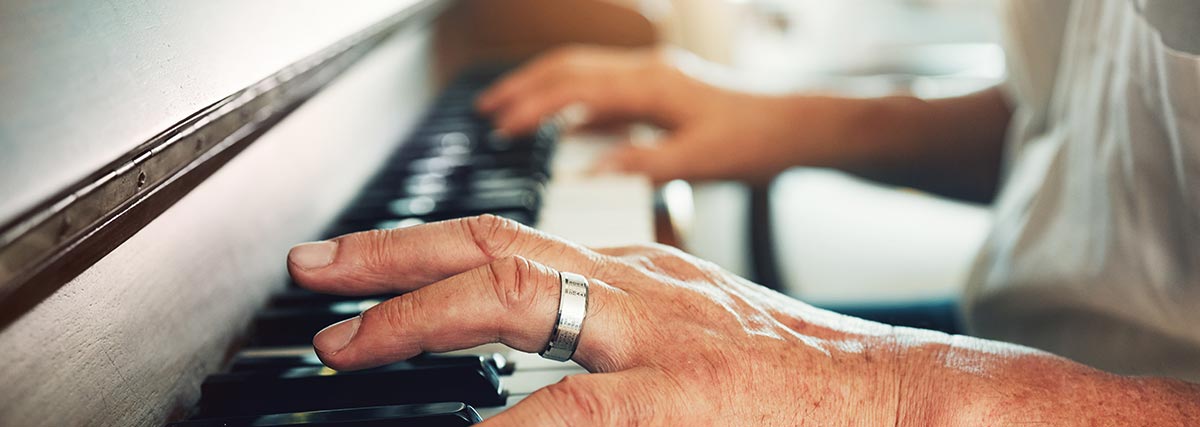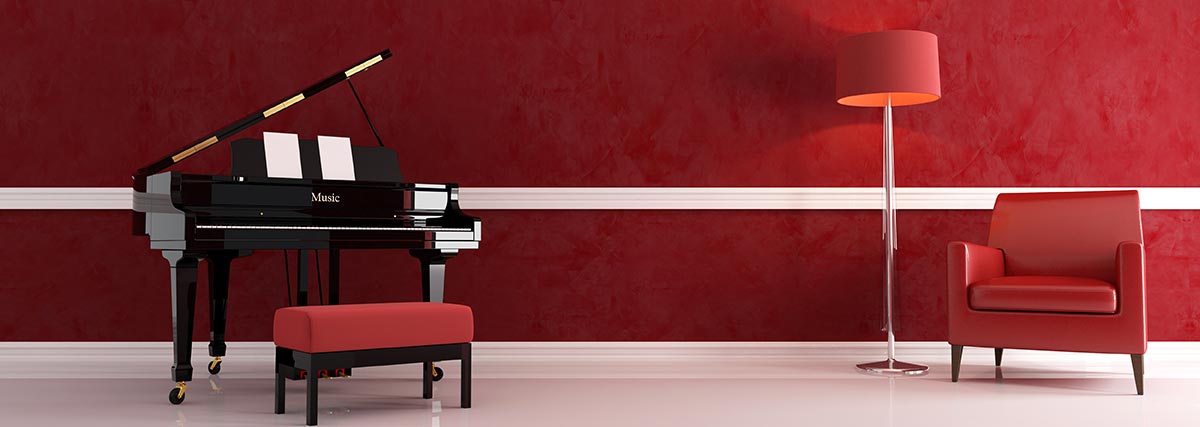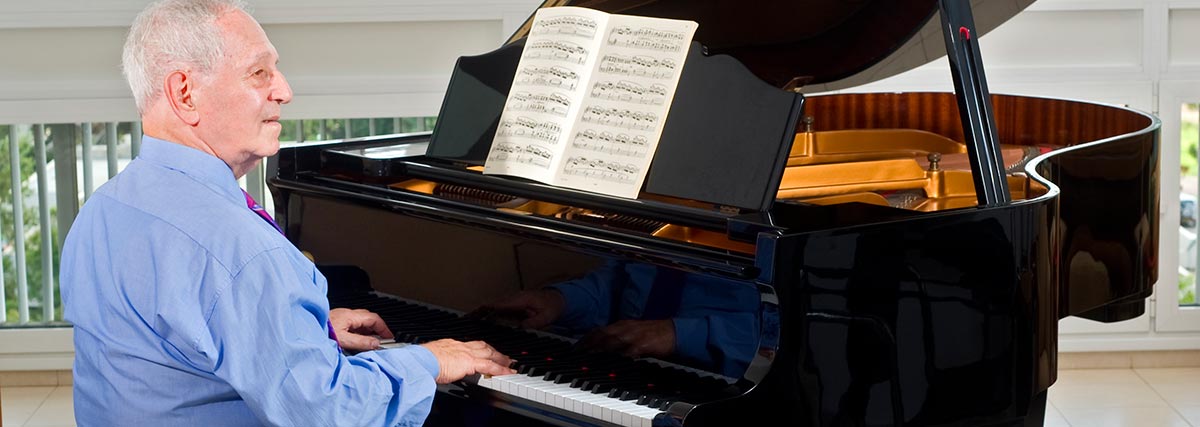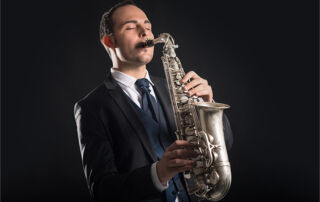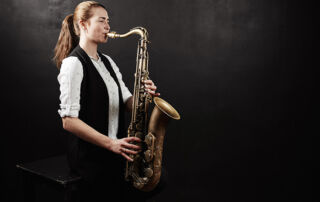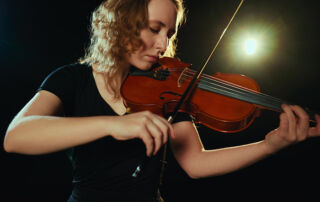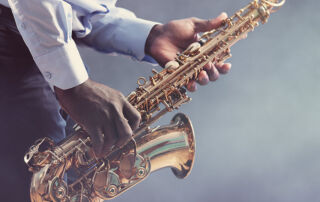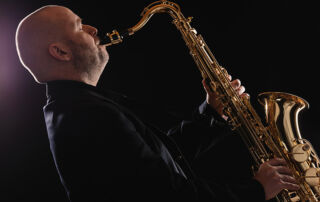Creating music can be highly enjoyable, yet some individuals find that venturing into this art form can be quite challenging. Many people didn't have the opportunity to learn the piano in their youth due to various reasons, opting to pursue it as adults. Others, who began their musical journey at a young age, eventually chose to abandon the instrument during their teenage years.
The number of adults learning the piano is continually increasing, leading some publishers to develop dedicated methods tailored for them, with a different rate of progression compared to methods designed for children.
This is one of the easiest instruments to learn and quickly get to grips with.
Unlike bowed string instruments like the violin or cello, a piano note is 'ready to use'; you only need to place your finger on the key to produce a sound.
Just because you don't start young doesn't mean all hope of ever playing is lost.
Of course, we don't all progress at the same speed: some are able to play their first piece after three months, while others will have to wait a little longer.
The first step is to know how to read the notes on a staff (treble and bass clefs).
The second step is to train the coordination of both hands.
Remember that around 90% of senior students have no knowledge of music theory.
The enemy of adults
In my teaching experience, I've noticed that adults tend to be stressed and lack confidence in music.
People need reassurance from their teacher because they are often hesitant and easily feel self-conscious.
Once these barriers have come down, it's time for the learning to begin.
Not finding the time to train can be an additional worry, but working 20 to 30 minutes a day for the first few years will be enough to progress.
Am I too old to learn the piano?
The time you dedicate to practicing after a day's work is crucial. Choosing to focus your session on unwinding from work, for instance, can help you alleviate the day's tension, making it your personal moment of relaxation.
You may not progress as quickly as a child who has no particular concerns or stresses in their life. Fortunately, the human brain, thanks to its plasticity, is capable of remodeling itself based on the level of stimulation it receives.
Nor is it easy to accept learning from another adult.
The teacher will need to adapt his or her teaching so that it is not too academic and discouraging for the student.
Playing music creates new connections in the brain and prevents age-related cognitive decline.
You'll be so happy to finally be able to play the piece you've been listening to for so long that new neural connections will be created after a while.
As the brain ages, some skills may undergo modifications, potentially leading to a longer learning curve for piano playing. However, the brain's lifelong plasticity mechanism, which enables learning, remains intact.
There is evidence that certain brain regions show significant structural changes after three months of learning a discipline.
However, once you stop practising, these changes disappear. That's why it's essential to work every day.
The neurons engaged in acquiring new information undergo alterations in their interactions. Neuronal plasticity is at its peak around the age of seven, during the period of the most rapid development of the brain's connections.
Conversely, an older person's wealth of personal experiences from their past serves as a valuable asset in the learning process.
As an adult beginner, you have the patience and perseverance that a young child doesn't yet have.
Unlike a child, an adult can dedicate their efforts to what they deem essential, identify areas for improvement, but may need to invest extra effort in enhancing finger dexterity.
My advice to an adult beginner
Remember to work with both hands separately.
First the left hand plays the rhythmic part, then the right hand sings the melody.
The aim is to be able to coordinate the two hands and feel comfortable reading a score.
Select a piano that aligns with your budget and consider your neighbours and the hours during which you'll be practicing. If your practice schedule is during the night, especially in an apartment setting, it's advisable to choose a piano equipped with a headphone jack.
Determine the style of music you'd like to play on the piano: classical, jazz, pop...
Isolate yourself during your training sessions to minimise disruptions from family members and enhance your ability to concentrate.
Don't be afraid or ashamed of making mistakes. You may make a few or a lot at first, but that's perfectly normal.
Define a goal: perhaps you dream of being able to play that piece or song you've been listening to and have taken up the piano for.
Start looking for a piano teacher you trust and who would be interested in giving you lessons.
Please don't put any pressure on yourself. Stay calm and slow in your work.
Progress will come very quickly. It often happens that practice works very well one day, but the results don't live up to your expectations the next. This phenomenon also occurs with professionals.
Conclusion
So there's no age limit for taking up the piano, and feeling too old shouldn't be an obstacle at all.
Combine motivation, regularity, perseverance, concentration and unhurried work.
Don't forget that each lesson is designed to help you progress slowly but surely, as long as you stick to the order of the exercises.
The lessons given by the teacher follow a pedagogical logic, so don't skip an exercise or even a page because you think it's too easy.
Make sure you do it correctly and several times in a row.


